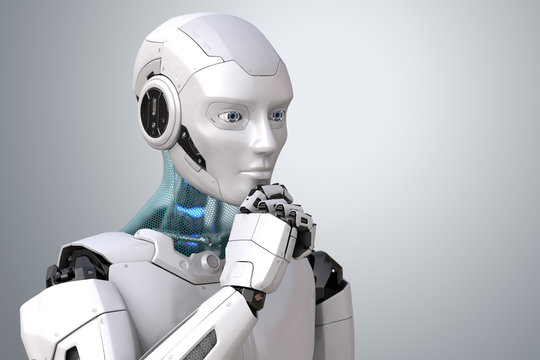
The Future of Robotics: Transforming Lives and Industries
As we venture further into the 21st century, the role of robots in our daily lives and work environments continues to expand, promising transformations that were once the realm of science fiction. This article explores the burgeoning capabilities of robotics, the ethical considerations they raise, and their potential impact on various sectors.
Unveiling the Next Generation of Robots
The future generation of robots is characterized by unprecedented advancements in artificial intelligence (AI), machine learning, sensor technology, and materials science. These robots are not confined to repetitive tasks on assembly lines; they can make complex decisions, learn from their environments, and even collaborate with humans.
In medical fields, robotic systems are already performing surgery precisely, surpassing human capabilities in some instances. Future robots will assist in complex procedures and provide real-time diagnostics and personalized patient management systems.
Household robots, which currently perform basic tasks like vacuuming, are expected to evolve into more competent aides capable of cooking, elderly care, and home management, adjusting their functions to cater to their human counterparts’ specific preferences and needs.
Transforming Industries Beyond Imagination
Robotics is poised to revolutionize industries beyond traditional manufacturing. In agriculture, robots equipped with AI can optimize crop yields and reduce waste by precisely watering, harvesting, and treating plants. In construction, robotic systems enable building structures both safer and at a pace unattainable by human crews.
The transportation sector will see profound changes with autonomous vehicles becoming mainstream, significantly reducing accidents, optimizing traffic flow, and revolutionizing urban design. Furthermore, robotics in logistics, from automated warehouses to drone delivery systems, will enhance efficiency and reduce delivery times.
Ethical and Social Considerations
As robots become more integrated into our lives, they raise ethical questions. The displacement of jobs by robots is a significant concern, necessitating strategies for workforce retraining and shifts in educational focus towards skills that AI cannot easily replicate.
Privacy and security are also significant considerations as robots collect vast amounts of data to operate efficiently. Ensuring this data is protected and not misused is imperative to maintaining public trust and safety.
Preparing for a Robotic Future
Education systems and regulatory frameworks must evolve to navigate the future landscape that robots will shape. Education should emphasize STEM, creativity, and emotional intelligence, skills where humans have the edge over machines. Meanwhile, policymakers must create regulations that ensure the safe integration of robots into society, including standards for safety, data protection, and ethical guidelines.
Conclusion
The future of robotics offers exciting possibilities that could redefine how we live and work. While there are challenges to address, particularly regarding ethics and workforce impact, the benefits—increased efficiency, safety, and new opportunities—are profound. As we stand on the brink of this new era, society must ensure that the rise of robots aligns with the broader goals of human welfare and ethical advancement.
By embracing these technologies wisely, we can harness robotics’ full potential to enhance our capabilities and create a better, more efficient world for future generations.

